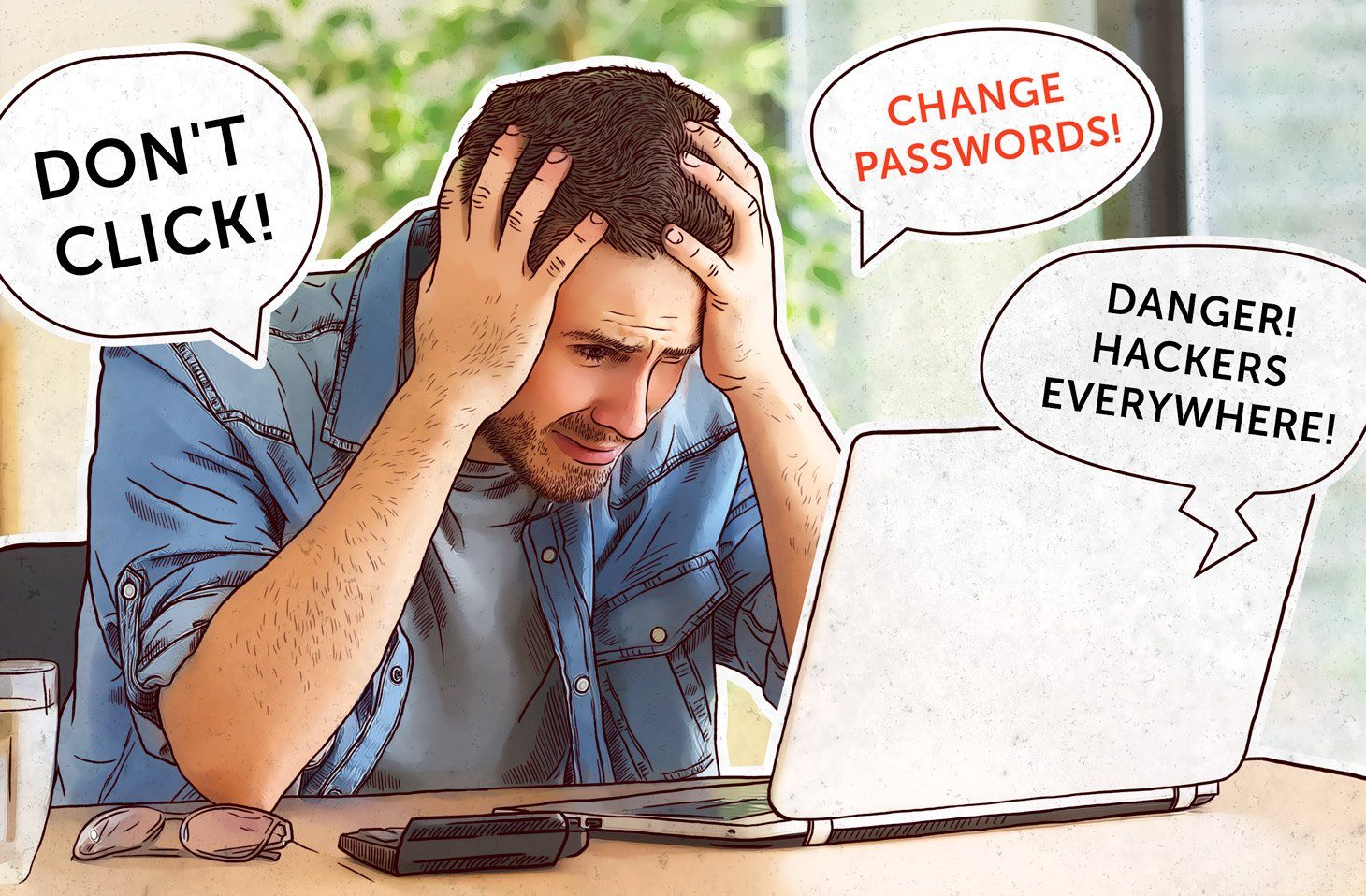Recently, while I was helping a family member handle the app updates, OS patches, cybersecurity, de-cluttering, and file backup he needed for his business laptop, he groused that he’d rather go back to pencil and paper. He accepted the superior ability of his computer for some tasks, but he never signed up for staying on top of cyberthreats. And even though I almost believed he’d do it, we had The Talk then and there.
It’s not enough to avoid online porn and sketchy apps. In 2018, electronics are no longer the thrill they once were — but connected gadgets also aren’t exactly optional. You simply cannot escape the connected world, or the need to stay safe in it.
Being interested in the whole, holistic picture of saving the world, we at Kaspersky Lab wanted to look beyond the strict boundaries of cybersecurity and consider how our business necessities, personal mobile companions, and all other things technological affect our human soft tissues as well.
To that end, we surveyed more than 2,000 consumers in North America to learn about their attitudes on cybersecurity, if it relates to stress in their daily lives, and who they trust with protecting their data. We present the results in our new report, “The State of Cyber-Stress.”
More data, more breaches, more stress
As people store an increasing amount of data electronically, continual news about data breaches and other cybersecurity issues causes widespread, chronic stress. Consumers also feel stress over their own ignorance of how to protect themselves from online threats, citing increased stress levels around technology usage and cybersecurity as a whole. The commonsense security measures of yesteryear don’t always cut it in 2018.
We found that a whopping 81% of Americans and 72% of Canadians feel personally affected by cybersecurity issues, saying news of data breaches causes them stress — and according to experts, frequent stress can cause even more problems for the average consumer. “The everyday, nagging, accumulating pressure and tension we feel when we don’t have enough capacity to cope with the demands of life” is what causes the majority of stress-related disease and disorder, explains Heidi Hanna, executive director of the American Institute of Stress. The link is especially strong, she says, when we feel “unable to keep up with the pace of change, something that is inherent in our constantly connected, digital lifestyle.”
Technology overload
Worrying about bogeymen is hard enough; nearly half of the consumers we surveyed cited something much closer to home as a major stressor: passwords. Of respondents ages 16 to 24, 46% are overwhelmed by choosing, and keeping track of, secure passwords.
Considering the ease with which simple passwords can be cracked, not to mention the extremely risky but very common practice of reusing passwords, we highly recommend using a capable password manager such as Kaspersky Password Manager.
They’re not wrong
That level of cyber-stress is unfortunate, but consumers’ fears are justified. We found that 46% of survey respondents experienced at least one cybersecurity issue in recent years. Worse, 14% of Americans and 6% of Canadians admitted to facing four or more cybersecurity issues in the past five years.
Having one’s fears come to pass only adds to ongoing anxiety over cybersecurity. One-third of people surveyed (33%) say they often find it stressful protecting all of their devices after having a cybersecurity issue in the last five years.
Trust gone
As a result of breaches — and fear of breaches — consumers have become more wary. They are losing confidence in the ability of businesses and technology solutions to protect their information. One in five (22%) said no sector was reliable, and most wouldn’t even trust password management software, whose explicit reason for existence is helping consumers protect their data.
We won’t argue with the idea that blithely trusting any business can be a mistake; it’s critical to investigate the businesses you entrust with your data, and that’s why we point readers toward our many independent test results. Although independent testing merely ensures the effectiveness of password managers’ features (do they suggest strong passwords, store them securely, etc.?), Brian Anderson, vice president of consumer sales at Kaspersky Lab North America, explains that our own Password Manager stores data securely. “All data stored within Kaspersky Password Manager is encrypted and only accessible if the user inputs the master password into the solution. Kaspersky Lab has no knowledge of or access to a user’s master password, and in fact, it cannot be recovered by technical support if lost or forgotten.”
Trust misplaced
Oddly enough, people appear to be willing to entrust their data to other people, who may or may not be trustworthy, may or may not take sufficient care with the information, and may or may not even know how to employ best practices with regard to cybersecurity. Yet nearly half of survey respondents (49%) would share their device user name and password with their partner, and the same percentage would trust their partner with the answers to their security questions.
Although consumers are increasingly aware of cybersecurity risks, many have no idea how to secure their devices. Not knowing how to gain control of their digital lives makes people feel overwhelmed at the very thought of cybersecurity.
So what can be done about people’s rising cyberstress levels? Consumers can take matters into their own hands by installing a comprehensive security solution such as Kaspersky Premium, which takes the pressure off of them to protect all of their devices from complex threats. In turn, technology companies can help by educating consumers about cyberthreats, showing them that security doesn’t have to be stressful. (That’s what we’re doing on this blog, as a matter of fact). Educated users can feel empowered rather than stressed out — not to mention, they help make their connected world a safer place and can instil the same cybersecurity responsibility in others.
To read the full Kaspersky Lab report, “The State of Cyber-Stress,” visit our website.
 survey
survey

 Tips
Tips